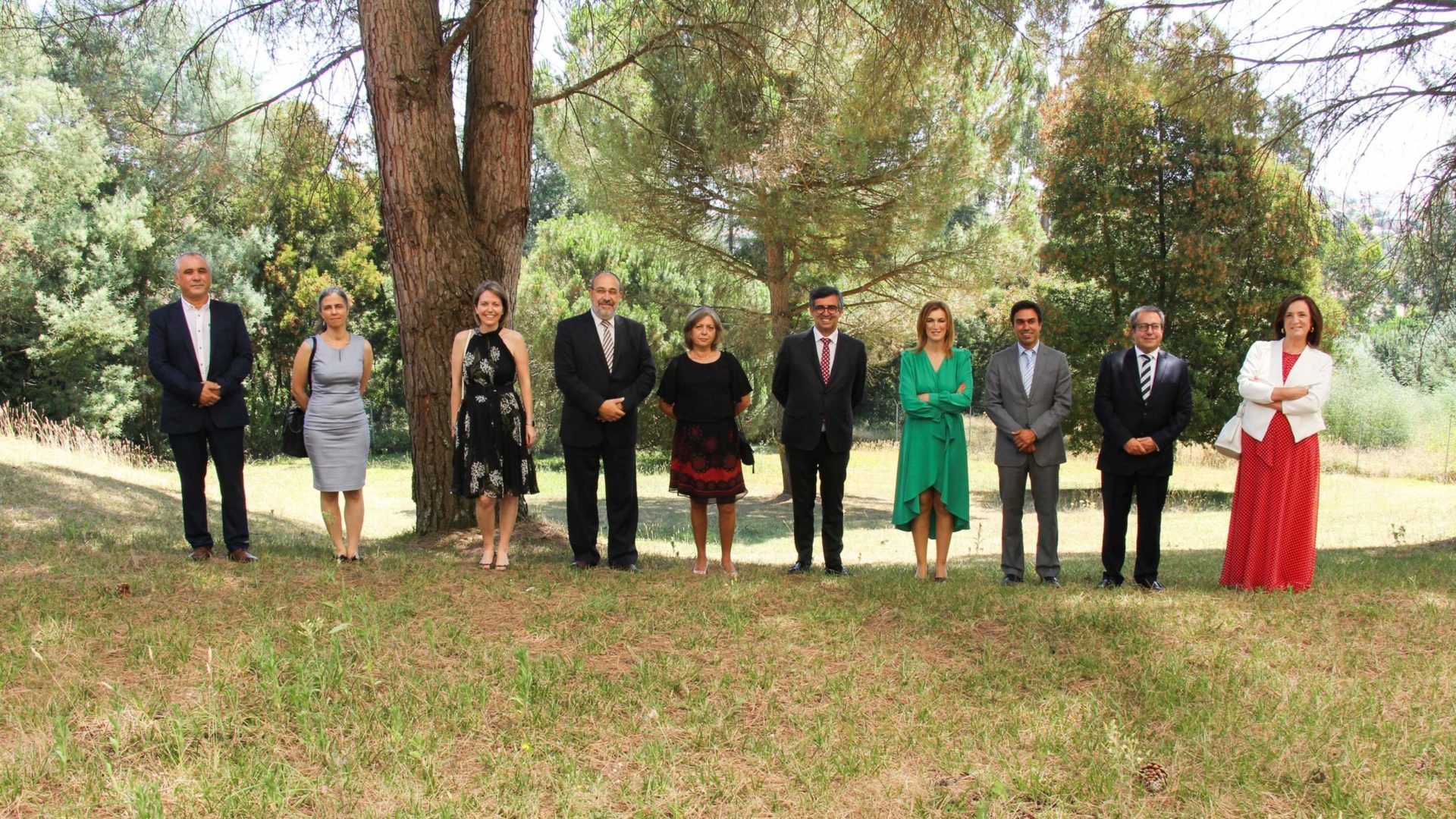The President of the Polytechnic of Coimbra is the highest governing body and external representative of the institution. They are also the body responsible for conducting the institution’s policy and chairs the Management Board and the Senate. The President is elected by the General Council, in accordance with the Statute.
The President heads and represents the Polytechnic of Coimbra, and is responsible for, in particular:
– Prepare and submit to the General Council the following proposals: Medium-term strategic plan and action plan for the four-year term of office; General guidelines for the institution in the scientific and pedagogical field; Annual activity plan and report; Consolidated budget and annual accounts, accompanied by the opinion of the sole auditor; Acquisition or disposal of the institution’s real estate assets and credit operations, with these proposals being subject to the prior opinion of the organic units regarding the assets assigned to them; Creation, transformation or extinction of organic units, after consultation with the Advisory Council; Tuition fees owed by students.
– Approve the creation, suspension and termination of courses based on proposals from organic units, in accordance with the law;
– Approve the maximum values for new admissions and registrations, based on a proposal from the Management Board;
– Oversee academic management, deciding, in particular, on the opening of tenders, the appointment and hiring of staff, in any capacity, the designation of juries for tenders and academic tests and the system and regulations for the evaluation of teachers and students, based on a proposal from the school;
– Guide and supervise the administrative and financial management of the institution, ensuring efficiency in the use of its means and resources;
– Provide support to students within the framework of school social action, in accordance with the law;
– Approve the granting of honorary titles or distinctions following a favorable opinion from the general council or, in the case of distinctions of a scientific nature, from the Technical-Scientific Councils of the schools with their main teaching activity in that scientific area;
– Establish school awards after a favorable opinion from the General Council;
– Approve the elections and appointments of members of the management bodies of organic units with their own governing bodies and put them into office, being able to refuse to do so only on the grounds of illegality;
– Appoint and dismiss, in accordance with the law and the statutes, the heads of organic units without their own governing bodies;
– Appoint and dismiss, in accordance with the law and the statutes, the administrator and managers of the institution’s services;
– Exercise disciplinary power, in accordance with the provisions of the law, in relation to employees and students of organic units without management autonomy and employees of the presidency services;
– Ensure compliance with the decisions taken by the institution’s collegiate bodies;
– Approve the statutes of the organic units and approve the regulations provided for in the law and in the statutes, without prejudice to the regulatory power of the organic units, within the scope of their own competences;
– Ensure compliance with laws, statutes and regulations;
– Propose the initiatives it deems necessary for the smooth running of the institution;
– Perform other functions provided for by law and statutes;
– Communicate to the supervising minister all data necessary for the exercise of this function, namely plans and budgets and activity and accounts reports;
– Take the necessary measures to guarantee the quality of teaching and research in the institution and its organic units;
– Represent the institution in or out of court.
– The President is also responsible for all powers that are not attributed by law or by the statutes to other bodies of the institution.
– The President may, in accordance with the law and the statutes, delegate to the Vice-Presidents and the management bodies of the institution or its organic units other powers that are necessary for more efficient management.

Presidential team:
President
Professor Jorge Conde
Vice-President
Ana Ferreira
Vice-President
Daniel Roque Gomes
Vice-President
Érica Castanheira
Administrator of the Polytechnic of Coimbra
Sandra Matos
Pro-President
António Paulino
Pro-President
Carlos Veiga
Pro-President
Lúcia Simões Costa
Pro-President
Maria João Cardoso
Administrator of Social Action Services
João Lobato
Director of the Penedo da Saudade Cultural Center
Cristina Faria
Director of INOPOL | Entrepreneurship Academy
Sara Proença
Director of Institute of Applied Research | I2A
Marta Henriques
Deputy Director of Institute of Applied Research | I2A
Ana Cristina Veloso



